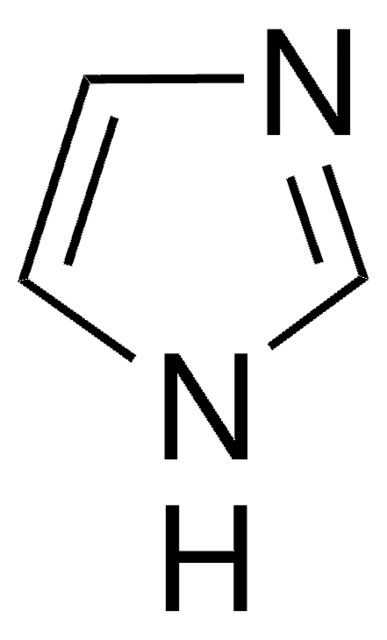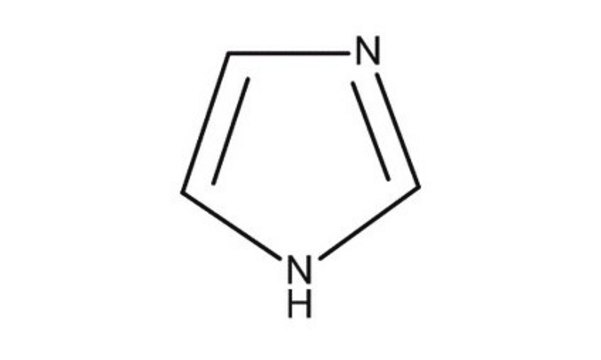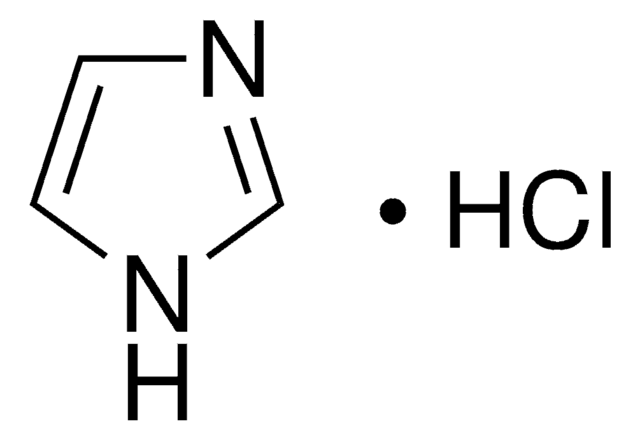I0086000
Imidazole
European Pharmacopoeia (EP) Reference Standard
Synonym(s):
1,3-Diaza-2,4-cyclopentadiene, Glyoxaline
About This Item
Recommended Products
grade
pharmaceutical primary standard
Agency
EP Reference Standard
vapor pressure
<1 mmHg ( 20 °C)
API family
imidazole
manufacturer/tradename
EDQM
pKa (25 °C)
6.95
bp
256 °C (lit.)
mp
88-91 °C (lit.)
application(s)
pharmaceutical (small molecule)
format
neat
SMILES string
c1c[nH]cn1
InChI
1S/C3H4N2/c1-2-5-3-4-1/h1-3H,(H,4,5)
InChI key
RAXXELZNTBOGNW-UHFFFAOYSA-N
Looking for similar products? Visit Product Comparison Guide
General description
Application
Packaging
Other Notes
related product
Signal Word
Danger
Hazard Statements
Precautionary Statements
Hazard Classifications
Acute Tox. 4 Oral - Eye Dam. 1 - Repr. 1B - Skin Corr. 1C
WGK
WGK 2
Flash Point(F)
293.0 °F
Flash Point(C)
145 °C
Choose from one of the most recent versions:
Certificates of Analysis (COA)
Sorry, we don't have COAs for this product available online at this time.
If you need assistance, please contact Customer Support.
Already Own This Product?
Find documentation for the products that you have recently purchased in the Document Library.
Customers Also Viewed
Our team of scientists has experience in all areas of research including Life Science, Material Science, Chemical Synthesis, Chromatography, Analytical and many others.
Contact Technical Service






